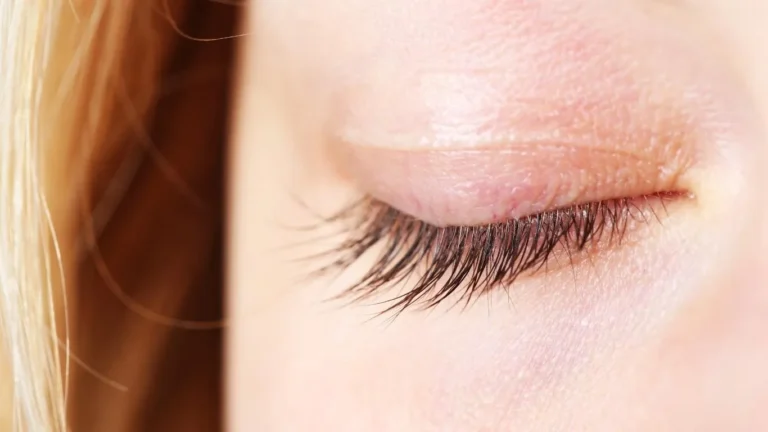Can Mindfulness Meditation Really Reduce GERD Symptoms? Find Out Now!
Can mindfulness meditation reduce GERD? That’s a question I’ve been asked countless times by my patients, and honestly, I used to be skeptical. As a digestive health specialist, I’ve always leaned toward evidence-based treatments—dietary changes, medications, and lifestyle adjustments. But over the years, I’ve seen something fascinating: patients who practice mindfulness meditation often report fewer GERD symptoms. This got me digging into the science behind it, and what I found was pretty compelling. Let’s explore how mindfulness meditation might be the missing puzzle piece in managing GERD.
Understanding GERD: More Than Just Heartburn

Gastroesophageal reflux disease (GERD) isn’t just an occasional case of heartburn. It’s a chronic condition where stomach acid flows back into the esophagus, causing irritation, discomfort, and in some cases, long-term complications. If you’ve ever experienced that burning sensation creeping up your chest after a meal, you know how miserable it can be.
Common Symptoms of GERD
- Frequent heartburn (burning pain in the chest)
- Regurgitation of food or sour liquid
- Chronic cough or throat irritation
- Difficulty swallowing
- Feeling like there’s a lump in your throat
Sound familiar? You’re not alone. GERD affects millions of people worldwide, and its triggers vary—from certain foods to stress and even poor posture.
The Gut-Brain Connection: Why Stress Makes GERD Worse

Here’s where things get interesting. The gut and brain are in constant communication through the gut-brain axis. When you’re stressed, your body enters fight-or-flight mode, leading to increased stomach acid production and slowed digestion—both of which spell trouble for GERD sufferers.
How Stress Triggers Acid Reflux
- Increased stomach acid: Stress signals your body to ramp up acid production, making reflux more likely.
- Weakened LES (Lower Esophageal Sphincter): Stress can cause this valve to relax, allowing acid to escape into the esophagus.
- Poor digestion: When your body is in stress mode, digestion takes a backseat, leading to bloating and delayed stomach emptying.
For years, I had patients tell me their GERD flares up during stressful times—job pressure, family conflicts, even just rushing through meals. And they were right! Scientific studies have confirmed the link between stress and GERD symptoms.
Can Mindfulness Meditation Reduce GERD Symptoms?

Now that we know stress makes GERD worse, let’s talk about mindfulness meditation. This practice involves focusing your attention on the present moment, often through deep breathing and awareness exercises. It’s been widely studied for its effects on stress reduction, but could it actually help GERD?
What Science Says About Mindfulness for GERD
Recent research suggests that mindfulness meditation may help reduce GERD symptoms by:
- Lowering stress levels, which helps reduce stomach acid production.
- Improving digestion by promoting a parasympathetic (rest-and-digest) response.
- Enhancing body awareness, making you more mindful of eating habits and food triggers.
I’ve had patients who incorporated mindfulness into their daily routines report fewer flare-ups, better digestion, and even improved sleep—another major factor in GERD management.
How to Practice Mindfulness Meditation for GERD Relief

Alright, now that we know mindfulness meditation might help with GERD, let’s talk about how to actually do it. The good news? You don’t need fancy equipment, expensive classes, or a monk-like lifestyle to get started. A few minutes a day can make a big difference.
Step-by-Step Mindfulness Meditation for GERD
If you’re new to meditation, don’t worry—I’ve got you. Here’s a simple practice to get you started:
- Find a quiet space: Sit or lie down in a comfortable position.
- Focus on your breath: Inhale deeply through your nose, hold for a moment, then exhale slowly.
- Observe your body: Notice any tension, especially in your stomach or chest.
- Stay present: If your mind wanders, gently bring your focus back to your breath.
- Practice for 5-10 minutes: Gradually increase the duration over time.
That’s it! No complicated rituals, no pressure. Just breathing and being. And trust me, it gets easier with practice.
Why Mindful Eating Matters for GERD

Meditation isn’t the only way to bring mindfulness into your life. One of the biggest game-changers for GERD patients is mindful eating. I’ve seen so many people (myself included!) eat in a rush, barely chewing their food, and then wondering why they’re dealing with acid reflux.
How Mindful Eating Helps Reduce GERD
- Slows down eating, preventing overeating and reducing pressure on the stomach.
- Improves digestion, since proper chewing helps break down food efficiently.
- Reduces stress-related eating habits that often trigger GERD symptoms.
Instead of mindlessly shoveling food while scrolling through your phone, try eating with full awareness. Notice the textures, flavors, and sensations. Put your fork down between bites. Your stomach (and esophagus) will thank you.
Combining Meditation with Other GERD Management Strategies
Mindfulness meditation isn’t a magic cure, but when combined with other GERD-friendly habits, it can be a powerful tool for symptom relief. Here’s how to maximize its benefits:
1. Adjust Your Diet
Be mindful of trigger foods like spicy dishes, caffeine, and fatty meals. Keeping a food diary can help identify what’s causing your reflux episodes.
2. Improve Your Sleep Position
Sleeping with your head slightly elevated can prevent acid from creeping up at night. I always recommend a wedge pillow to my patients.
3. Reduce Stress in Other Areas
Pair mindfulness meditation with activities like yoga, deep breathing, or simply spending time in nature. Less stress = fewer flare-ups.
By incorporating mindfulness into daily life, from meditation to eating habits, you’re giving your gut the best possible chance to heal and function optimally.
Case Studies & Real-Life Examples

So, does mindfulness meditation really help with GERD? Let’s look at some real-world experiences—because I know you’re probably thinking, “This sounds great in theory, but does it actually work?”
Case Study #1: Emily, the Stress-Eater
Emily, a 38-year-old teacher, had been battling GERD for years. She noticed her acid reflux got worse during exam season when stress levels were through the roof. After trying PPIs (proton pump inhibitors) and diet changes with limited success, she decided to incorporate mindfulness meditation.
Her routine was simple: 5 minutes of deep breathing every morning and mindful eating during lunch. Within weeks, she noticed a reduction in symptoms. No more late-night reflux, and she wasn’t relying on antacids as much.
Case Study #2: Mark, the Fast Eater
Mark, a 45-year-old software engineer, had a habit of scarfing down meals between meetings. His GERD symptoms were relentless—burning in his chest, regurgitation, and even some sleep disturbances. After a consultation, I suggested he slow down and practice mindful chewing (chewing each bite at least 20 times).
At first, he found it tedious, but after a month, his symptoms improved. He felt fuller faster, had fewer reflux episodes, and even noticed less bloating.
Key Takeaways: What You Need to Remember
If you’ve skimmed through this article and are looking for a quick summary, here are the biggest takeaways:
- Stress makes GERD worse by increasing stomach acid production and weakening the esophageal sphincter.
- Mindfulness meditation can help by lowering stress, improving digestion, and promoting healthier eating habits.
- Mindful eating is just as important—slowing down, chewing properly, and being present during meals can significantly reduce reflux.
- Small changes lead to big results—just a few minutes of mindfulness daily can have a positive impact.
FAQs
1. How long does it take for mindfulness to improve GERD symptoms?
It varies from person to person, but many people notice improvements within a few weeks of consistent practice. The key is to stick with it!
2. Can I replace GERD medication with mindfulness meditation?
No—mindfulness is a complementary approach, not a substitute for medical treatment. Always consult your doctor before making changes to your medication.
3. Does mindfulness help with nighttime acid reflux?
Yes! Mindfulness can reduce stress-related acid production and improve digestion, which may help with nighttime symptoms. Pair it with good sleep posture for better results.
Bonus: Additional Resources or DIY Tips
Want to take your GERD management to the next level? Here are some extra tips:
- Try guided meditation apps like Headspace or Calm—they have great stress-reducing exercises.
- Experiment with herbal teas (chamomile and ginger are great for digestion).
- Keep a food and symptom journal to identify triggers and track progress.
Appendix: Table, References, and Disclaimer
| Mindfulness Benefit | Impact on GERD |
|---|---|
| Lower stress levels | Less acid production, reduced reflux |
| Mindful eating | Prevents overeating, aids digestion |
| Improved digestion | Reduces bloating and reflux episodes |
References:
- National Center for Biotechnology Information
- Mayo Clinic – GERD and Stress
- Harvard Health – The Gut-Brain Connection
Disclaimer: This article is for informational purposes only and does not replace professional medical advice. Always consult your healthcare provider for diagnosis and treatment.
Call to Action
Have you tried mindfulness meditation for GERD? I’d love to hear about your experience! Drop a comment below or share this article with someone who might benefit.
And if you’re ready to take control of your digestive health, why not start with just 5 minutes of mindfulness today? Your gut will thank you!

Camellia Wulansari is a dedicated Medical Assistant at a local clinic and a passionate health writer at Healthusias.com. With years of hands-on experience in patient care and a deep interest in preventive medicine, she bridges the gap between clinical knowledge and accessible health information. Camellia specializes in writing about digestive health, chronic conditions like GERD and hypertension, respiratory issues, and autoimmune diseases, aiming to empower readers with practical, easy-to-understand insights. When she’s not assisting patients or writing, you’ll find her enjoying quiet mornings with coffee and a medical journal in hand—or jamming to her favorite metal band, Lamb of God.







